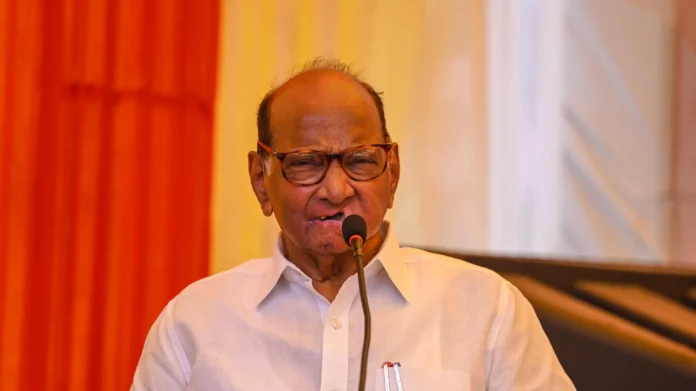Mumbai: As Maharashtra heads towards a high-stakes assembly election, veteran politician Sharad Pawar is once again emerging as a central figure. The octogenarian leader of the Nationalist Congress Party (NCP-SP) is known for his strategic acumen and ability to adapt to the rapidly shifting political landscape. This time, his role is particularly pivotal as the state witnesses a clash between the Mahayuti alliance led by the Bharatiya Janata Party (BJP) and the Maha Vikas Aghadi (MVA) coalition, comprising the NCP, Congress, and Uddhav Thackeray’s Shiv Sena (UBT).
The Mahayuti coalition, which includes the BJP, Shiv Sena (led by CM Eknath Shinde), and smaller regional players, is focusing on a development-first narrative. With its power grip at the state level, the alliance’s strength lies in its widespread organizational machinery, financial resources, and governance continuity. However, internal rifts, especially between the Shinde-led faction and Ajit Pawar, could be a weakness as the election approaches. The alliance’s support from rural voters may also waver amid growing agrarian concerns.
On the other hand, the Maha Vikas Aghadi is attempting to present itself as a strong opposition. Sharad Pawar’s leadership is expected to galvanize the party’s base, especially in rural areas and among the Maratha, Dalits & OBC community. The MVA’s diversity of ideologies could be both a strength and a weakness—while offering a broad appeal to various voter bases, it might also create challenges in presenting a united front. Pawar’s political experience and ability to attract smaller parties will be key opportunities for the coalition. The challenge, however, remains in overcoming the public perception of instability, especially after the previous government’s collapse.
As the election approaches, Sharad Pawar’s moves—whether aligning with new forces, brokering strategic deals, or capitalizing on emerging issues—could redefine Maharashtra’s political future.

